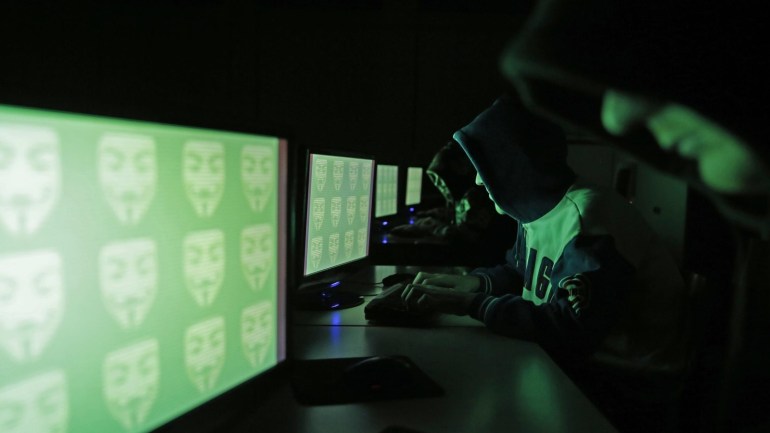Apple announced a new software update Monday to fix a security vulnerability that was exploited to hack iPhones and other devices made by the company, according to a report by the Washington Post.
Spyware researchers have discovered what they say is a new exploit from Israel's NSO Group's Pegasus monitoring tool targeting iPhones and other Apple devices through the iMessage app, in another sign that apps Chat has become a popular way to hack political opponents and human rights activists.
Apple released a patch on Monday to close a vulnerability discovered by researchers at Citizen Lab who said they had found the breach in the iPhone records of a Middle Eastern political activist, and alerted the company to the problem.
This is the first time since 2019 that researchers have discovered the malicious code used to hack Pegasus, as this discovery provides new insights into the company's technologies, which were first highlighted last July, by a global multilateral investigation that included the Washington Post. and 16 other news organizations.
The researchers said the hacking technology used, which they dubbed "FORCEDENTRY", has been active since at least February and can secretly invade iPhones, MacBooks and Apple devices in a so-called "zero pressure attack", a technology that NBC specializes in. S.O. is headquartered in Israel.
The "zero-click" technology allows the spyware to install itself on the phone without the owner doing anything, for example, not needing to click on a particular link.
The spyware can then turn the phone into a spying device, which can record from its cameras and microphones, and send location data, messages, call logs and emails to an NSO customer.
Zero-click technology allows the spyware to install itself on the phone without the owner doing anything, for example, not needing to click on a specific link (Reuters)
Pegasus strikes again
"We wouldn't have discovered this exploit if the spy tool hadn't been used against someone who shouldn't be targeted like the political activist," said John Scott Railton, a researcher at the Citizen Lab at the University of Toronto.
Apple declined to comment to the Washington Post about the software update on Monday, and released a patch targeting the Pegasus attacks, but did not mention NSO Group.
"Processing malicious web content may lead to arbitrary code execution. Apple is aware of a report that this issue has been actively exploited," the company said in a post describing the attacks.
The NSO Group declined to respond in detail to the Citizen Lab report, saying only in a statement Monday that it will continue to provide intelligence and law enforcement agencies around the world with "life-saving technologies to combat terrorism and crime."
Previously, when it learned that the spyware had been used in violation of the company's contract, Apple said it was investigating and canceled customer contracts in cases of misuse of Pegasus technology.
Amnesty International's security laboratory, the technical partner of the investigation, examined 67 phones whose numbers appeared on a list that the organization and the French press had access to.
Since its publication, Amnesty International's Security Lab has confirmed infections or traces of Pegasus spyware on 15 additional phones, including that of British human rights activist David Haye.
The investigation's discovery of successful Pegasus hacks for iPhones, including some recent models with the latest software updates, has raised questions about whether the security of Apple's mobile devices lives up to its reputation as more secure and private than its competitors — a theme for years that Apple has relied on marketing its devices. However, it is not clear if they are the same ones used in the objectives identified by Project Pegasus.
The findings, by Citizen Lab on Monday, may renew pressure on NSO Group and Israel to agree to Pegasus export licenses.
Israeli Foreign Minister Yair Lapid said earlier this month that the government would review NSO's work to ensure "nothing we sell is misused."
A senior adviser to US President Joe Biden discussed the spyware during a July meeting with a senior Israeli Defense Ministry official, and members of Congress called on the White House to press ahead with regulations, sanctions and other investigations designed to address spyware abuse.

